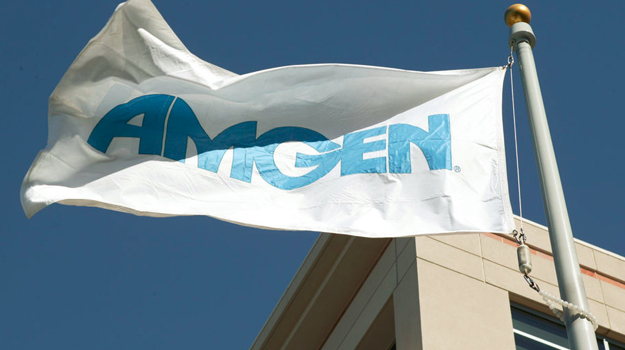Amgen pledges $1.9bn to alliance with AI specialist Generate

Fresh from a sizeable funding round that raised $370 million, artificial intelligence-based drug discovery firm Generate Biomedicines has just signed its first major partnering deal with Amgen.
The machine learning specialist – founded by venture capital firm Flagship Pioneering in 2018 – is getting $50 million upfront to kick off the alliance, with another £370 million in the offing for up to five programmes.
That makes total value of the deal a potential $1.9 billion – not bad for a company that only came out of stealth mode towards the end of 2020 – and it also includes an option on another five programmes.
Generate's machine learning platform is directed at teasing out the three-dimensional structure of human proteins, including how they are folded, to determine function, which is almost impossible to work out simply from an amino acid sequence.
From there, the drug discovery engine can be used to predict the structures of drugs – including short peptides, proteins like enzymes and cytokines, and antibodies – that will bind to a target. The 'in silico' approach is much quicker than conventional processes like high-throughput screening.
The partnership will bring that capability together with Amgen's expertise in drug discovery and development in inflammation, cancer and cardiometabolic diseases, which is also focused mainly on protein-based medicines.
It is an endorsement of Generate's platform, which puts it among a growing number of AI-driven drug development companies that also includes the likes of Exscientia, BenevolentAI and InSilico Medicine.
"We are now at a scientific hinge point, where computational approaches can advance our knowledge of biology and further drive our ability to design the right molecule for some of the most challenging targets," said Amgen's head of R&D David Reese.
"We believe Generate Biomedicine's integrated in silico design and wet lab capabilities combined with Amgen's strength in protein engineering can accelerate our drug discovery efforts," he added.
The deal also continues a drive by Amgen to build its pipeline, which has been hit by some late-stage setbacks and left the company looking a little reliant on KRAS inhibitor Lumakras (sotorasib) approved by the FDA for lung cancer last year.
Last year, the company made three acquisitions – paying $1.9 billion for cancer specialist Five Prime Therapeutics, $900 million for Teneobio and its bispecific/multispecific antibody platform, and up to $721 million for inflammation-focused biotech Rodeo Therapeutics.
It also took a $100 million stake in Neumora Therapeutics, a US biotech working on precision medicines for brain diseases, and handed over rights to programmes targeting casein kinase 1 delta and glucocerebrosidase for neurodegenerative diseases.













